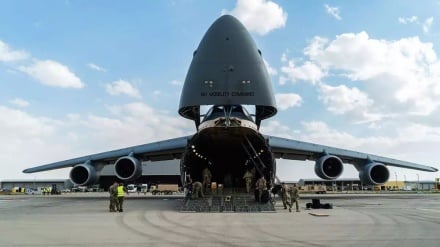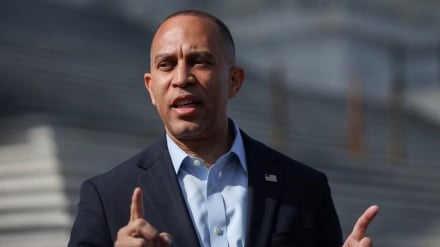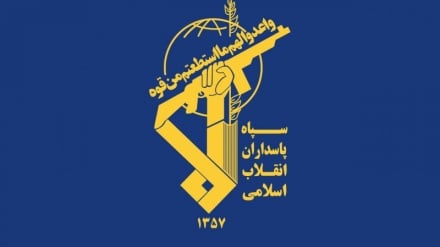Taipei must think carefully about siding with US
A couple of months ago, the United States and China seemed to be gliding toward a trade deal, but instead the conflict escalated into a comprehensive economic war.
On the strategic and geopolitical levels, China has become a strategic competitor and revisionist superpower in the eyes of Washington.
The wrestling of the two powers has impacted countries from Southeast Asia to Latin America, which are all cautiously seeking their best interests between the US and China.
Stay with us for an interesting article that appeared on Asia Times, titled: “Taipei must think carefully about siding with US”, by Kent Wang, a research fellow at the Institute for Taiwan American Study (ITAS) based in Washington, DC.
As the two sides remain deadlocked in a deepening dispute over trade and technology, Beijing has begun to tighten the noose. China seems to believe that the United States will sit by as it squeezes Taiwan. Taipei, meanwhile, has convinced itself that China has no plans to invade. And some experts say US President Donald Trump seems to think he can rock the boat without consequences, but Taiwan’s value as a Washington’s bargaining chip has increased. The big question is whether Taiwan should support the US to counter China.
The main change in US policy is that in the past Washington did not see China as a major competitor and did not want Taiwan’s stupidity to cause unease in the Taiwan Strait, and now Washington expects Taiwan to play a more effective counter-competitive role in order to contain China because of the various strategic rivalries between Washington and Beijing. As a result, Washington and Taipei began to strengthen their security cooperation so that political relations could be promoted. But it remains to be seen how long good relations between the US and Taiwan will last during Trump’s presidency.
Since Trump came to office, he has imposed tariffs on Chinese goods, and has made every effort to contain Huawei in order to suppress China’s rise and economic growth. The US-China trade war has not yet been settled, and Washington has upped the ante with increased goodwill toward the Taiwanese government, including the island in the anti-China ranks. President Tsai Ing-wen, however, in consideration of the battle to win re-election, has been hooking Taiwan’s security with the US-China confrontation. Is this truly a wise move?
The United States and China have become foes, while Washington has extended all the more friendship to Taiwan. Last year, in quick succession, the US Congress passed bills friendly to Taiwan to show its friendliness, making the Tsai government beam with joy. The problem is that the US policy friendly to Taiwan is limited to the counter-China scope; with respect to other crucial areas, such as trade talks, the Tsai government, nevertheless, has not secured an iota of payback in exchange. The weird thing is that Taipei has not been actively seeking substantive benefits from Washington, while following Trump in blasting China.
Trump, who is known for his loose-cannon temperament, is the biggest variable in the trilateral US-China-Taiwan relationship. Various US allies in the Indo-Pacific region share a commonality: China is their largest export market; hence they are extremely worried about the comprehensive confrontation between the US and China, not wanting to get dragged into the storm, but devoting themselves to maintaining a good relationship with both. Only Taiwan hoists a unique banner, not only one-sidedly tilting toward the US, but even willing to be a small pawn in the game.
In a recent speech, Richard Bush, a senior fellow at the Brookings Institution and director of its Center for Northeast Asian Policy Studies, talked about Trump’s personal traits and decision-making mode, as well as the policy-formulation process by the Trump government’s core figures. He made a serious and objective analysis of current US-Taiwan relations. His speech debunked the unrealistic expectations some figures harbored toward US-Taiwan ties, also exposing the Democratic Progressive Party’s ploy in playing the US card. Bush also said Trump had asked his national-security staff, “What good would there be for the US to support Taiwan?” After his staff indicated the pros and cons, Trump set his sights on China, where the US could get more benefits.
In fact, though it is worrisome that Trump wants to use Taiwan as a chess piece, it is even more horrible that Tsai is willing to be a pawn. It is true that the two big powers are fiercely competing in multiple areas, from economics to trade, geopolitics to ideologies, both wanting to gain the upper hand; however, China’s military strength has been rising, while the US has many battlefronts, plus the fact that the nuclear threat has obliged the US to consider the possible consequences of an eventual full-scale conflict with China, thus it has been conservative so far.
It is clear that Trump does not believe that the use of force to protect Asian allies is in the interest of the United States. The Trump administration’s current policy toward Taiwan is chaotic and conflicting; if Taiwan were a strategic asset to the United States, the US would not be economically damaged, but Taiwanese companies were on the list of US restrictions on China’s technology output. The 2020 presidential election campaign has been heating up in Taiwan, and the electoral prospects do not look good for the DPP; this is probably something that the Taiwan people, as well as the US and China need to take to heart.
If Taiwan intended to join the ranks of pledging allegiance to the US in countering China, and at the same time, to freeze cross-Strait relations, then that would be using Taiwan’s economy, the peace dividends in the Taiwan Strait, and the feelings of the people on both sides of the Strait as collateral to deliver a pledge, vowing full good faith and allegiance in exchange for support of its regime. However, Taiwan’s people have already seen enough tactics of political struggles in the name of preserving sovereignty; will the public allow a politician who is willing to be a puppet of a superpower to lead their country?
More than any recent US president, Trump displays a tremendous amount of ignorance of major aspects of foreign policy. Even worse is the fact that he seems proud of it. If Taipei follows the US very closely, positioning itself on the opposite side against Beijing, it will inevitably harm Taiwan’s economic interests. Should US-China hostilities worsen in the future, or if the two largest economies reconciled because of a change of US president, Taiwan would be mired in a predicament of no path forward nor of retreat. The trade war can have serious consequences and Taiwan needs to consider carefully how to balance its interests vis-à-vis the United States and China.
SS/SS


